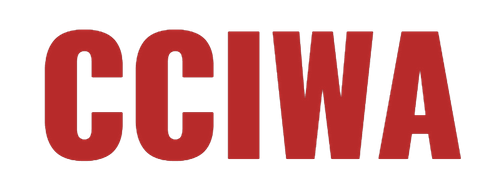Drug detoxification, also known as detox, often serves as the first phase of addiction treatment.
A drug-dependent person may find the idea of undergoing detox daunting and quite stressful due to many factors involved.
That is fully understandable because the decision to undergo detox is not simple. Many questions are often involved.
Since medical detox occurs in a hospital setting, patients often wonder how much it would cost them and whether they can afford it.
Unfortunately, cost is the main reason why most people postpone detox. But what is the truth behind the cost of detox? How much does drug detox cost? Does insurance cover the cost?
Read this post to the end to find out how much drug detox costs and crucial factors that may influence the price.
What is Medical Drug Detox?
Before moving forward, it is crucial to differentiate between medical detox and medication-assisted therapy (MAT).
Medical drug detox is the first step in the recovery process for overcoming drug addiction. Therapy sessions and prescription drugs are administered after the detox to provide ongoing support.
Medical detox aims to give the body and mind a clean slate by eliminating all drugs. The detoxification process treats acute intoxication and manages withdrawal symptoms.
Conversely, MAT programs offer a “whole-person” perspective to addiction treatment by combining therapy sessions with FDA-approved medications.

Medical detox is available in inpatient and outpatient settings. Medical detox in an inpatient setting involves gradually weaning a patient off drugs in a controlled environment under medical supervision.
A patient must stay at the facility for a certain amount of time.
On the other hand, outpatient detox entails going for treatment sessions in the daytime or evening, but the patient goes back home.
The cost difference is the main factor most people consider when seeking medical detox. Many of them find outpatient medical detox more desirable because it costs less.
How Much Does Drug Detox Cost?
Several factors influence the cost of treatment, and these factors may differ from one treatment center to another. Here are some of the factors that affect the cost of medical detox:
- Severity of the drug addiction
- Type of treatment
- History of past rehabilitation trials
- Amenities offered
- Insurance coverage
- Location of the treatment facility
Generally, outpatient drug detox and rehabilitation are cheaper than inpatient detox. That’s because, with outpatient treatments, the patient does not stay in the facility when undergoing detox.
On the contrary, inpatient care costs include the time spent in the treatment center. But remember, inpatient treatment is more structured, particularly for those with severe addiction and lack a support system.
Drugs like opioids, benzodiazepines, and alcohol may cause uncomfortable withdrawal symptoms. So, while medical detox in a supervised inpatient environment is more expensive, it is also safer.
An outpatient detox program costs between $300 and $800 per day, but the total costs can go up to $1,500.

Additionally, some outpatient drug detox and rehabilitation services can cost $10,000, while the cost of intensive outpatient treatment ranges from $3,500 to $11,000.
Everything depends on the detox duration, whether medication is required, and related variables.
Now, you are probably curious how long detox takes. It takes three to seven days on average but can take longer based on the patient’s condition and symptoms.
Put another way, the cost of detox in an inpatient setting can range between $1,500 and $4,000, excluding the overall cost of care. But if a patient requires emergency detox, the price may go higher.
Typically, the cost of inpatient medical detox is calculated in the whole addiction treatment program, and it may cost between $15,000 and $30,000 for a 30-day program.
Do Medications Administered During Detox Affect Costs?
Yes. Medical detox causes different withdrawal symptoms, and doctors use prescription drugs to manage them, just like in MAT programs.
When experiencing withdrawal, doctors at the treatment center may administer antidepressants, costing between $70 and $595 monthly.
Health insurance mainly covers antidepressants, but they may be cheaper.
Sometimes, doctors use benzodiazepines to keep patients calm during drug detox and alleviate mental withdrawal symptoms like anxiety.
Medicare beneficiaries pay $190 on average for benzodiazepines per year. Still, these medications range from $8 to $2,515. Remember that some of the more potent medicines in this class may cost more than the center charges.

That’s why it is advised that you discuss all these detox-related costs with the facility, an addiction expert, and the finance department. That also applies to the cost of prescription drugs.
Patients in opioid addiction treatment centers often take methadone to prevent the onset of severe withdrawal symptoms.
A full-year methadone maintenance therapy costs about $4,700 per patient, according to the National Institute on Drug Abuse.
Overall, the cost of drug detox and medications differs from person to person. In this case, there is no one-size-fits-all approach because it depends on the individual patient, the severity of their addiction, and other variables.
That explains why facilities often schedule consultations and evaluations with patients and their family members.
Does Insurance Cover Detox Costs?
Yes, insurance coverage is one means of paying for substance rehabilitation, including medical detox programs.
When the Affordable Care Act (ACA) was introduced in 2010, it required health insurance providers to cover addiction treatment services.
Health insurance plans cover:
- Addiction treatment
- Behavioral healthcare, including psychotherapy and counseling
- Inpatient behavioral health services
Insurance coverage for your detox may vary based on where you live and the type of health insurance you carry. Some insurance providers cover part of the cost or the total amount.
However, a national survey showed that many addiction treatment programs fall short of the ACA’s promise to increase access to and the quality of addiction treatment.
For this reason, it is crucial to find medical detox facilities that accept insurance and offer their patients top-notch care.

Some of the insurance types that cover addiction treatment, including detox at different treatment facilities across the country, include:
- Medicaid
- Medicare
- Military insurance (VA)
- State-financed health insurance
- Private insurance
Remember, insurance providers may cover only a portion of total expenditures. This may make funding for detox and treatment manageable.
However, insurers impose several criteria when deciding how much coverage to give each patient.
Your insurance provider collaborates with your treatment facility and doctor to identify the required treatment and when and how long they will cover the detox.
Some insurance plans cover detox only, but treatment facilities will carefully evaluate each patient’s needs. These evaluations can help increase insurance coverage, if necessary.
What If I Don’t Have Insurance?
Americans now have better access to medical coverage thanks to the ACA. Despite this, many still lack health insurance.
Accordingly, you may wonder whether you can afford the cost of drug detox without medical insurance. More often than not, people who need addiction treatment do not seek it because they believe they cannot afford it.
Fortunately, you can get assistance in other ways, even without health insurance. There are free and low-cost centers that offer addiction treatment.
Moreover, many addiction treatment facilities offer financing options for people without insurance.

Financial consultants in these facilities work with patients and their families to ensure they receive the care and support they need.
While free rehabs may be enticing because they are free, financing options at addiction facilities are a better choice.
Free rehabs sometimes have lengthy waiting lists and are underfunded, so their quality of care may be unsuitable for some people.
Choosing A Cost-Effective Drug Detox Facility
The cost and quality of the detox services vary depending on the facility you go to. You must conduct your due diligence when choosing a medical detox facility.
You see, drug detox is not a one-size-fits-all approach. Such factors as the extent of your addiction, age, gender, and available programs in the facility will inform your decision about a detox center.
Therefore, ask these questions when choosing a facility.
Does the facility treat your kind of addiction?
The detox process differs for every substance. A detox program for heroin is different from that for alcohol.
For example, some centers focus on detox programs for opioid addiction. Such a center would be inappropriate for people with alcohol use disorders.

Every facility will tell what they specialize in. You can use this information to determine the best detox center. That way, when paying for the drug detox, you know whether you are getting value for your money.
Is the facility accredited?
Accreditation is a good way of determining the legitimacy of a facility. Avoid going to any center without ensuring they have the resources to provide a safe drug detox and withdrawal management.
Contact the pertinent authorities to check whether the facility is listed. Accredited facilities will appear in the directory.
This way, you avoid the hassle of working with unprofessional facilities that may lead to relapse.
How much do they charge for drug detox?
You must check the cost of treatment in the facility you are considering. Different detox centers have different charges based on their rating, expertise, and patient need
So, you must check the drug detox costs to determine whether you can afford it. Also, consider the programs offered in the center. The best centers provide both outpatient and inpatient detox programs.
Summary
The cost of drug detox varies. Factors such as the severity of addiction, length of treatment, and medications administered influence pricing.
Therefore, it is critical to find facilities that fall within your budget. Also, consult an addiction recovery expert to know the kind of treatment you need and whether you qualify for insurance coverage.
At CCIWA, we are fully committed to helping you recover from addiction and live a sober life. We work around the clock to connect you with the best treatment facilities that offer medical drug detox at affordable rates and accept most insurance.
Contact us today to kick start your journey towards fully recovery. We are more than happy to help you overcome addiction.



